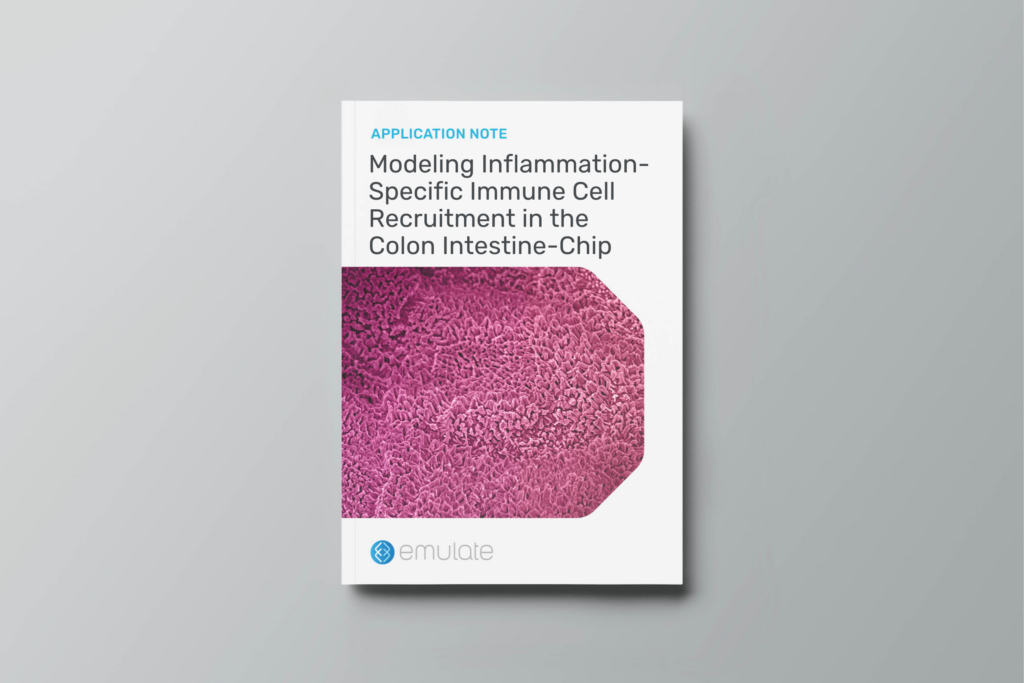Overview
Inflammatory bowel disease (IBD) is a complex pathology with a large, rapidly growing, unmet medical need. The two methods typically used to study IBD, animals and conventional in vitro models, suffer from poor translatability to humans, the ability to only model a narrow range of disease features, and many more issues that prevent the creation of effective IBD therapeutics.
Emulate’s Colon Intestine-Chip was previously developed as a primary human vascularized model of the intestinal barrier capable of recapitulating physiologic cell composition, morphology, and barrier function. This application uses the Colon Intestine-Chip to model the progression of IBD driven by immune cells more completely than previous models.
Key Highlights
- Applicable in studies of inflammation-specific immune recruitment from vasculature into epithelial tissue and subsequent downstream effects.
- Treatable with clinically relevant IBD therapeutics to reduce PBMC recruitment and protect the epithelium from downstream cytokine response.
- The most complete picture of human IBD pathogenesis and a more human-relevant platform for drug candidate efficacy and mechanism-of-action studies.

